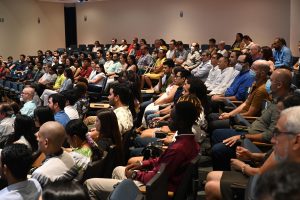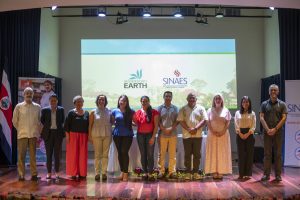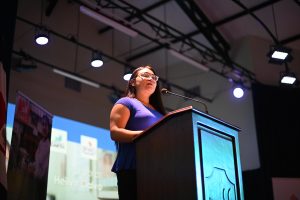EARTH has successfully renewed its accreditation by SINAES!
 EARTH University has renewed its accreditation from the National Accreditation System for Higher Education (SINAES in Spanish) which applies from 2022 to 2025. . We celebrate our University’s continued commitment to meet internationally recognized quality standards that assure potential employers of our graduates that their university education is of the highest in excellence.
EARTH University has renewed its accreditation from the National Accreditation System for Higher Education (SINAES in Spanish) which applies from 2022 to 2025. . We celebrate our University’s continued commitment to meet internationally recognized quality standards that assure potential employers of our graduates that their university education is of the highest in excellence.
SINAES was created in 1999 to ensure the quality of higher education in Costa Rica, providing official accreditation to universities for their academic excellence and degree programs. The process of receiving this important recognition is voluntary and implies a solid commitment by EARTH to strive for continuous improvement.
 Our University received its first accreditation from SINAES for its Agricultural Sciences degree for in November 2006. EARTH was Costa Rica’a first international university to receive this recognition demonstrating educational quality. We revalidated the status in 2010, which was extended from July 2017 to 2021, according to an agreement with the National Accreditation Council.
Our University received its first accreditation from SINAES for its Agricultural Sciences degree for in November 2006. EARTH was Costa Rica’a first international university to receive this recognition demonstrating educational quality. We revalidated the status in 2010, which was extended from July 2017 to 2021, according to an agreement with the National Accreditation Council.
“To carry out the due process, an extensive internal call was made to gather people from different units, the faculty, and the student body and work together to analyze, conclude, and reach a common decision-making reflection. Without a doubt, this exercise allowed us to strengthen teamwork, listening, and dialogue ,” said EARTH’s President Arturo Condo in his speech during the ceremony on September 21 to receive the official recognition.
Here are 10 ways this process has contributed to our University for so many years:
- We have systematized the curricular revision by establishing committees that have evaluated the courses and improved the academic and course programs.
- The organizational structure has been strengthened in terms of academic quality.
- Information systems have been enhanced, creating documentation of the processes developed, sharing this information, and evaluating the results of their communication as part of the organizational learning processes.
- The standards of accreditation agencies such as SINAES and the Ibero-American Network for Quality Assurance in Higher Education (RIACES in Spanish) have been met.
- We conduct social research to review, evaluate, and update students’ Exit Profiles.
- We have advanced improvements in the faculty’s training processes and attention to professors’ professional development.
- We maintain an updated academic program focused onthe skills required by the labor market.
- We improved the interaction with the student government, the student affairs program, and the graduate relations model.
- Faculty research has been promoted, and students have been motivated to deepen their scientific skills, generating publications in specialized technical journals.
- The academic program infrastructure requirements have been met, along with those resulting from Law 7600.
 “Without a doubt, this renewed of accreditation will open important doors for the graduates, projecting us as professionals committed to our work. This achievement is momentous, and I am very pleased to have been part of it. As a community, we are committed to continuous improvement, taking on new challenges, working on our weaknesses, and elevating our strengths,” said student Heilyn Calvo (‘21, Costa Rica), who was part of the Self-Evaluation Commission, a team composed of faculty, staff, and students who made the successful completion of this process possible
“Without a doubt, this renewed of accreditation will open important doors for the graduates, projecting us as professionals committed to our work. This achievement is momentous, and I am very pleased to have been part of it. As a community, we are committed to continuous improvement, taking on new challenges, working on our weaknesses, and elevating our strengths,” said student Heilyn Calvo (‘21, Costa Rica), who was part of the Self-Evaluation Commission, a team composed of faculty, staff, and students who made the successful completion of this process possible
This Commission was coordinated by Carlos Rodríguez, Director of Academic Affairs, Sandy Díaz, Director of Registrar’s & Academic Information, and faculty representatives Steven Brenes Prendas, Paola Chavarría, and Josafath Otero, along with students Heilyn Calvo and Rosa Rodezno (‘24, Honduras).
We thank this Commission for doing a splendid job at every stage of the accreditation. We thank the entire community for participating in this process in different ways. And we thank SINAES for trusting our work and following up on our continuous progress.




